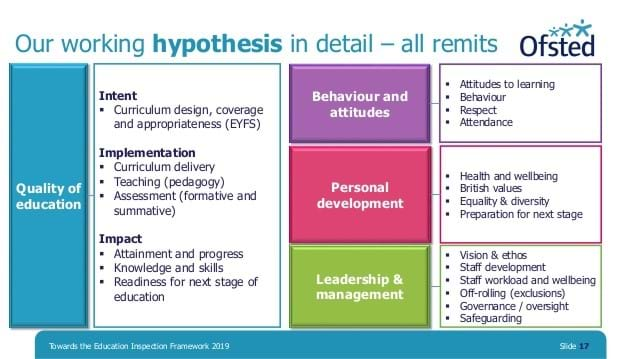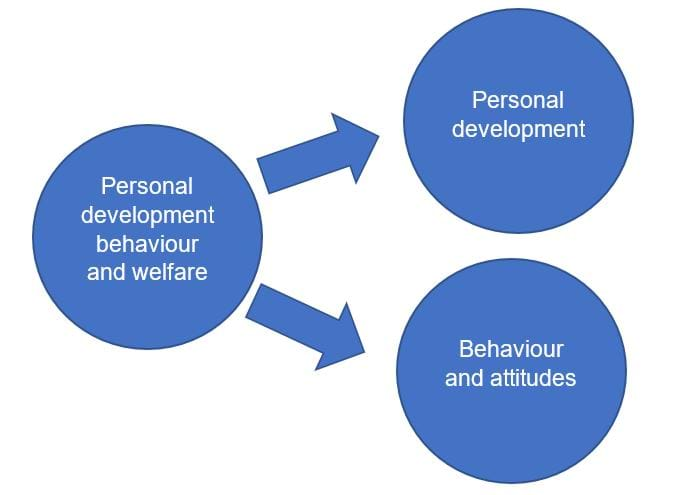Education Inspection Framework - Personal Development - Part 3 of 4
This is the third in our four-part series looking at each of the new judgements in the Education Inspection Framework. We have previously looked at the quality of education and behaviour and attitudes and will subsequently look at leadership and management in the next Bulletin.

Ofsted (2019)
The previous judgement of ‘personal development, behaviour and welfare’ has been separated resulting in two judgements, one for ‘behaviour and attitudes’ and one for ‘personal development’.

The development of a child’s personal development extends beyond academic, technical or vocational skills and knowledge. It supports the child’s broader holistic development and includes the development of character, resilience, independence and confidence. An essential role for practitioners is to enable children to learn how to keep themselves both physically and mentally healthy through a curriculum that offers effective care practices and promotes their physical and emotional health.
Inspectors will seek to observe a range of opportunities that encourage active physical play both inside and out and how consistent and clear messages support healthy food choices, rest, exercise and screen time; this will include the role of adults as positive role models.
The experiences provided by the setting should promote an understanding of people, communities and families that go beyond the children’s immediate experiences. These must be positive and prepare children for life in modern Britain by helping them to be respectful, value others and have an appreciation of diversity which will therefore help to secure their positive contribution to society.
The strength of a child’s character, resilience and mental health may determine how confident and ready they are for the next stage in their learning. This may include from one room to another or the step from a setting or childminder to a reception class.During inspection inspectors will spend as much time as possible gathering evidence to inform their judgement on personal development by:
- Observing children at play
- Talking to children and practitioners about care routines and the activities available
- Observing the relationships between adults and children
- Gauging children’s level of engagement in learning
- Talking to parents
- Observing care routines, including the settings approach to toilet training, the level of privacy afforded to children and supervision arrangements when completing intimate care.
For providers who only offer before and after school care and holiday provision the inspector will consider the criteria for this judgement when reaching their final judgement on the overall effectiveness: quality and standards of the early years provision and is likely to comment on specifics in the inspection report.
We are beginning to see Ofsted recommendations following inspection related to this judgement area, for example:
- Extend support for children to think about and learn to manage risks for themselves
- Increase opportunities for children to engage in energetic physical activity to help them learn about how exercise builds their muscles and is part of a healthy lifestyle
- Develop areas for older children to rest and relax in comfort during the session
- Extend children's respect and understanding of other people's similarities and differences outside of their own communities, religious beliefs and spoken languages even further
- Make the most of opportunities to consistently support children's growing independence
- Develop children's understanding of consistently following good health and hygiene routines to meet their personal needs more extensively.
For further support and training please visit our website.


